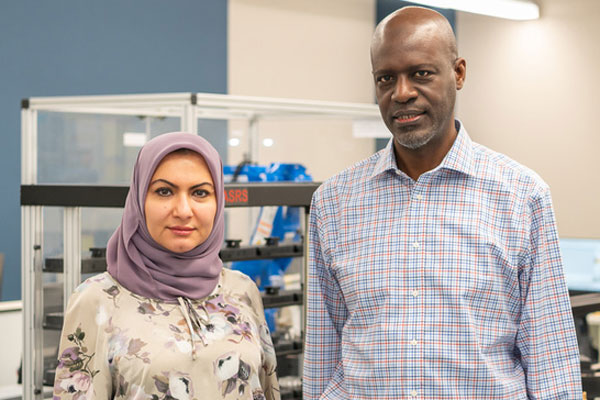An American University of Sharjah (AUS) research team has filed a provisional patent with the United States Patent and Trademark Office for a blockchain system they developed to improve the carbon credits trading (CCT) market.
CCT uses a marketplace to buy and sell credits that allow companies or other parties to emit a certain amount of carbon dioxide. Governments set limits on emissions, and companies that emit less than their limit can sell their excess credits to those that exceed their limit. CCT encourages companies to reduce their carbon emissions and invest in cleaner technologies, ultimately helping to combat climate change.
The AUS team’s new blockchain system aims to address the inefficiencies and challenges associated with current CCT platforms by automating a number of the components, including registering participants, generating credits, tracking, and trading as well as measuring carbon emissions. These improvements will help ensure transparency, immutability and credibility of operations and data records.
Reducing operational costs
“This innovation streamlines the carbon credit trading process and offers significant benefits such as reducing operational costs, processing time and mitigating risks associated with double-spending and lack of transparency, which current CCT systems face. It also aligns with the United Nations' goal of combating climate change by enabling governments to leverage CCT effectively.
“It empowers countries and organisations to track and monitor greenhouse gas emissions, facilitating carbon credit trading while also aiding in the development of strategies to control and reduce emissions,” said Dr Malick Ndiaye, Professor in Industrial Engineering and research lead.
He added: “The new technology could contribute to a reduction in air pollution, resulting in a healthier environment for people with improved air quality, reducing the risk of respiratory illnesses and other health issues associated with air pollution. The technology's ability to reduce operational costs and processing time in carbon credit trading can create economic opportunities for businesses and investors, leading to job creation, increased investment in sustainable technologies and overall economic growth.
Social equity
“Our technology offers transparency and access to carbon credit trading, which promotes social equity by ensuring that all stakeholders, including marginalised communities, have equal access to environmental resources and opportunities.”
Four years in the making, the technology was exclusively developed within the College of Engineering (CEN) at AUS, with full support from full-time PhD student Dr Alia Al Sadawi and an AUS Faculty Research Grant. Currently, a portion of the research is undergoing implementation in a prototyping phase at AUS to complete a case study on real time carbon emission measurement and monitoring. This new development phase is also supported by the Sharjah Entrepreneurship Centre.
The research team is working with the Technology Transfer Office at AUS to secure external funding and strong market partnerships for the technology’s future expansion and scaling.
Fuelled by a diverse community of scholars, researchers and students, AUS conducts cutting-edge research across a wide range of disciplines, addressing pressing global challenges and advancing knowledge for the betterment of society.
From discoveries in science and technology to pioneering studies in humanities, social sciences and the arts, AUS research endeavours strive to push the boundaries of knowledge and contribute to meaningful change on both local and global scales. With state-of-the-art facilities, interdisciplinary collaboration, and a culture of inquiry and exploration, AUS continues to strive for research excellence, empowering its community to make significant contributions to academia, industry and society as a whole.--TradeArabia News Service






























